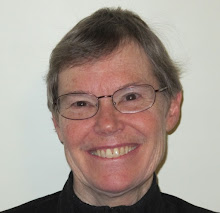My column has been published this week in the Danvers Herald:
"In his own words: my father's business."
I quoted heavily from a piece my father wrote in 1996, about six months before he died. If you'd like to read his original piece,
click here.
In His Own Words: My Father's Business
By Sandy Nichols Ward
"How did you get into the hearing aid business?" I asked my father one day. I'd always known him as president of his own company, Nichols and Clark, Inc., which designed and manufactured hearing aids. I wondered what came earlier, before the years I could remember. He enjoyed answering my question and wrote a brief summary of his working life. Here are words directly from my father, Nathan P. Nichols:
"How I slipped into the Hearing Aid business goes back to my early interest in radios… I liked to build, innovate, and experiment with mechanical and electrical things while still in grammar school. Popular Science and Popular Mechanics were my favorite reading magazines in the Library. In the early 20's at age of about 10, I succeeded in winding coils on oatmeal boxes, using World War One earphones, and a ‘cats whisker’ hitting a hot spot on a galena crystal, to make a home made radio work."
"At Mass State College I passed my Amateur Radio Operators license, and made my first code and voice contacts, and was the first person to graduate with a full major in Physics."
"I landed my first job as a "stock picker" at Lafayette Radio in New York City for $15 a week! After 6 months I had enough of city life and returned to Danvers producing radio tubes at Champion Lamp Works. When they went broke, I moved to Raytheon, pumping amateur and high power tubes. I later transferred to Hytron Radio in Salem, and helped my friend Ed Dillaby join Hytron too. He designed the first miniature radio tubes in USA to be small enough to make a wearable hearing aid practicable. … As my Aunt Oda had a very severe hearing loss I started making aids. … My bedroom, then my father's specially built four room garage served up to six friendly employees! Gradually I built up a small business of fitting custom aids mainly on recommendations of local or Boston Doctors, and maintained a Boston office during the War. … After the War the invention of the transistor by Bell Labs revolutionized all radio products and inspired me to design a whole series of smaller and smaller one piece hearing aids. We outgrew the garage, bought an old roadside fruit stand on Route I for about $250, and move it down Maple street to its present location next to the Hathorne Post Office. We employed about a dozen people, adopted the name "Unex", and sold aids nationally thru established dealers."
My father told me the name meant "UNexcelled" and he was very proud of the quality of the Unex products. He never claimed to be good at spelling, and I'm sorry (as daughter and Scrabble player) to report that "unexcelled" isn't in the dictionary.
Nick later built a new building, UNEX Laboratories, on Route 1 and expanded to about 30 employees. Thus over the years Nichols and Clark had four locations, all in the Hathorne section of Danvers, and all within walking distance from home. Nick even walked home for lunch, too. My mother also worked there, and I recall that they frequently discussed work issues, especially financial concerns, at lunch. (The only concern that generated more daily discussion was the weather and its possible effects on plans for various outdoor activities they loved.) My mother joked that people called her Mrs. Clark, since she was so involved in Nichols and Clark. I never heard much about the real Mr. Clark who must have been present originally. I did hear the tale of how my mother had "temporarily filled in" one week in the 1940's, and had been there ever since. She did office work, accounting, and became Treasurer. She worried more about finances than Daddy ever did. His interests lay in inventing new things and pursuing sailing, skiing, and Ham radio hobbies.
In his own words, "My interests were in innovations and not building a big company. I took in a business partner, Jim Woodbridge, who did double our business in about eight years, dropping hearing aids, and eventually selling the electronic products to Dodge Morgan and the Plastics Department to a Leominister group. It was a slow growing but interesting business, gave employment to a nice group of local people and friends, and I feel privileged to have lived to see such dramatic changes in my life time."
Nick lived from January 1912 to September 1996, a span of 84 years.
------------
For links to some interesting webpages I found in 2007 as I researched details in his history, click here.

